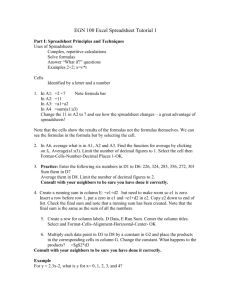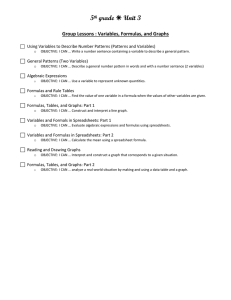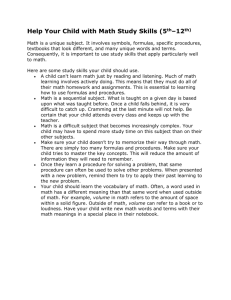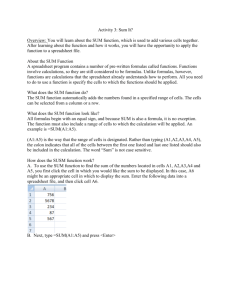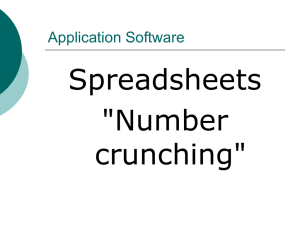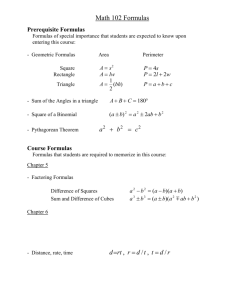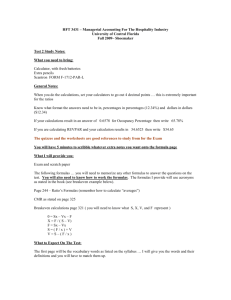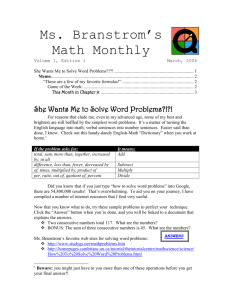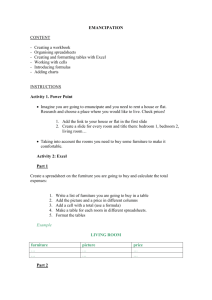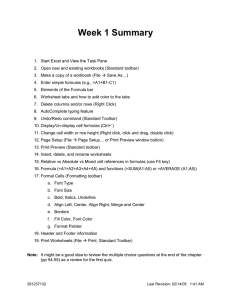Spreadsheets and Business - Fisher College of Business
advertisement
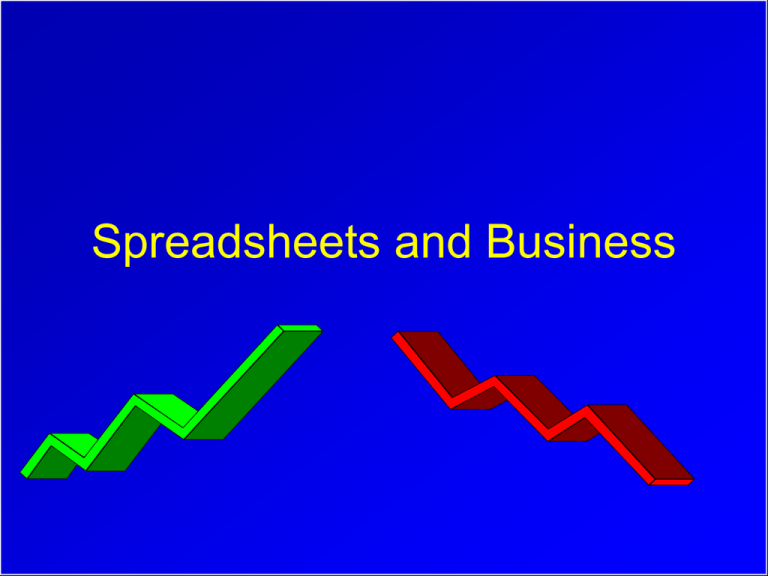
Spreadsheets and Business Why the popularity of spreadsheets? • “End user Computing” • Long delays for IS department to do analysis and reports • Ease-to-use, powerful software • No need to wait for that overworked professional programmer • Now - anyone can write software to do business analyses There’s the Rub……. • Critical business analyses is being done by amateurs • Think about …. How dependent business is on spreadsheets and How little validity checking is actually done! James A. Cummings, Inc >>> Criteria for good spreadsheet design • Accuracy – testing – Data entry controls to limit errors • Clarity – Easily understood by • creator • other users • Flexibility – Easily adapted – Remains valid Conceptual Model for Worksheet Layout • Input - Process - Output • Clearly separate Input from Output • Clearly specify Assumptions • To be more specific …………………... • • • • • • Desirable to have separate areas for: Identification Area Input Area Assumptions / Definitions / Formulas Work Area Output Area Macros (may not have them all in every sheet.) AMORT_TABLE.XLS >> Tips • Break lengthy formulas into parts – Easily hidden later • Use Functions Rather than Formulas • Use Labels, Shading, Lines, Color – anything to enhance readability • But don’t confuse – Form over Function – Aesthetics over Accuracy Cummings (2) >>> Tips • Clearly specify units of measure • No Numbers In Formulas – All placed in separate cells and referenced • Annotate Often • Document (i.e. Write It Down) – Assumptions – Formulas No_5 template >>>>> Tips • Get familiar with the Auditing Toolbar – precedents – dependents – Trace Error Auditing Toolbar >>>>> Testing • Accuracy of Worksheet – test with simple and predictable data • Full range of values • Independent Verification – Another set of eyes – A known test problem • Ad Hoc Testing - Whenever using a spreadsheet – The ‘eyeball’ test
